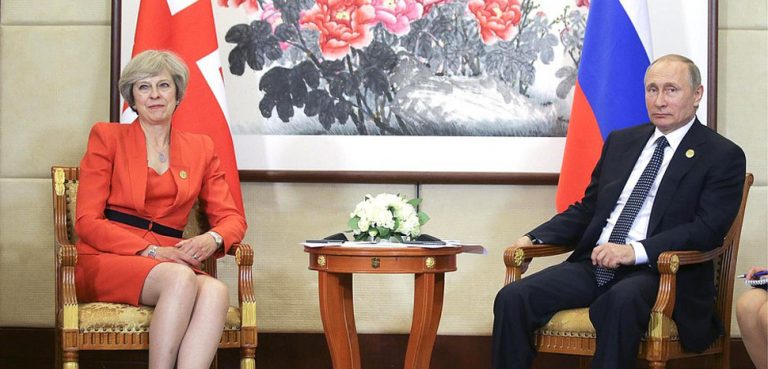The International Criminal Court (ICC) has long been the subject of considerable criticism, primarily because it lacks the power to exercise jurisdiction over some of the world’s most renowned human rights abusers. However, two recent cases have given the ICC an opportunity to extend its jurisdiction through the establishment of precedent, and without the mandatory United Nations Security Council referral.
If the ICC can extend its jurisdiction over Myanmar’s deportation of its ethnic Rohingya Muslims to Bangladesh and the recent attack by the Israel Defense Forces on Palestinians in Gaza, it could significantly improve the ICC’s public image and potentially hold the perpetrators of these atrocities accountable.
Since its founding in 2002, the ICC has fallen under harsh, yet admittedly warranted, condemnation for its perceived bias toward prosecuting African leaders, and its inability to exercise jurisdiction over states like Russia, Saudi Arabia, and the United States, who have committed notorious crimes in times of conflict.
Chief Prosecutor Fatou Bensouda has recently taken steps to combat this perception of the ICC. As chief prosecutor, she has the power to recommend cases to ICC judges and, if accepted, to file charges against those suspected to be responsible. This independence of the ICC’s ability to prosecute alleged atrocity perpetrators is important and means the ICC need not rely on United Nations Security Council referrals to exercise its mandate. Even though she has expressed her eagerness to prosecute such cases as the Syrian civil war, which would undoubtedly involve several ICC-duckers including Iran, Russia, the Syrian Arab Republic, the United States, and Saudi Arabia, it’s her recent inquiry into the situation facing the Rohingya in Myanmar and the attacks on Palestinians in Gaza that opens the most probable avenue of helping to repair the ICC’s image and expand the scope of the ICC’s work.
State Counsellor Aung San Suu Kyi and the Burmese army stand accused of committing a long list of crimes against humanity, ranging from genocide, to sexual violence as a weapon of war, to the forced deportation of the Rohingya people. The issue, however, is that Myanmar is not a signatory nor a party to the Rome Statute, the ICC’s founding document. But, one crime in particular has provided a unique opportunity for Chief Prosecutor Bensouda to launch an inquiry that would implicate the Burmese government. In mid-April, Bensouda asked ICC judges to consider the crime of forced deportation of the Rohingya people from Myanmar to Bangladesh, a state party to the Rome Statute, as a crime committed on the territory of a member state.
The inquiry is the first of its kind, and it could expand the body and breadth of crimes prosecutable by the ICC, as the court has yet to try a non-party state for a crime committed in a party state. Doing so would not only hold the Burmese government accountable for its crimes against the Rohingya community, it would also send a message to other states that ICC non-membership does not preclude them from its jurisdiction. Such a trial would hopefully, though a lofty goal, deter future non-ICC state parties from committing atrocities both in and outside their borders.
The situation in Gaza is decidedly more fraught than the Myanmar case as it involves Israel, a state with a long history of criticizing UN institutions. On May 14, the Israeli army used lethal force against a Hamas-organized protest along the Israeli border with Gaza, killing over 100 and injuring thousands more. The Palestinian Territories, a signatory to the Rome Statute since 2015, requested an ICC investigation on the basis that an atrocity was committed on its territory. Much like the case of Myanmar, if the ICC chooses to take on the Gaza case, it will effectively be prosecuting crimes committed by a non-signatory state on the territory of a signatory. This case could help rehabilitate the ICC’s public image; by taking on a county as politically protected as Israel and holding it to account, it will show the international community that its work won’t be stifled by non-compliance and diplomatic protection.
The Rohingya case and the Palestinian referral are under review by ICC judges and the Office of the Chief Prosecutor respectively. It will likely be months before we know if either case holds enough water to undergo an investigation and prosecution, but the precedents set by their submission to the ICC highlight the severity of the human rights situation facing the Rohingya and Palestinian people. Human rights groups, UN officials, and state governments have repeatedly condemned both the Burmese and Israeli governments for their treatment of the Rohingya and Palestinian people, in some cases citing that the crimes amount to genocide. Regardless of the possible advancements in international criminal justice, the ICC should seriously consider both cases for the sake of holding to account those who commit such atrocities.
The opinions, beliefs, and viewpoints expressed by the authors are theirs alone and don’t reflect any official position of Geopoliticalmonitor.com.




